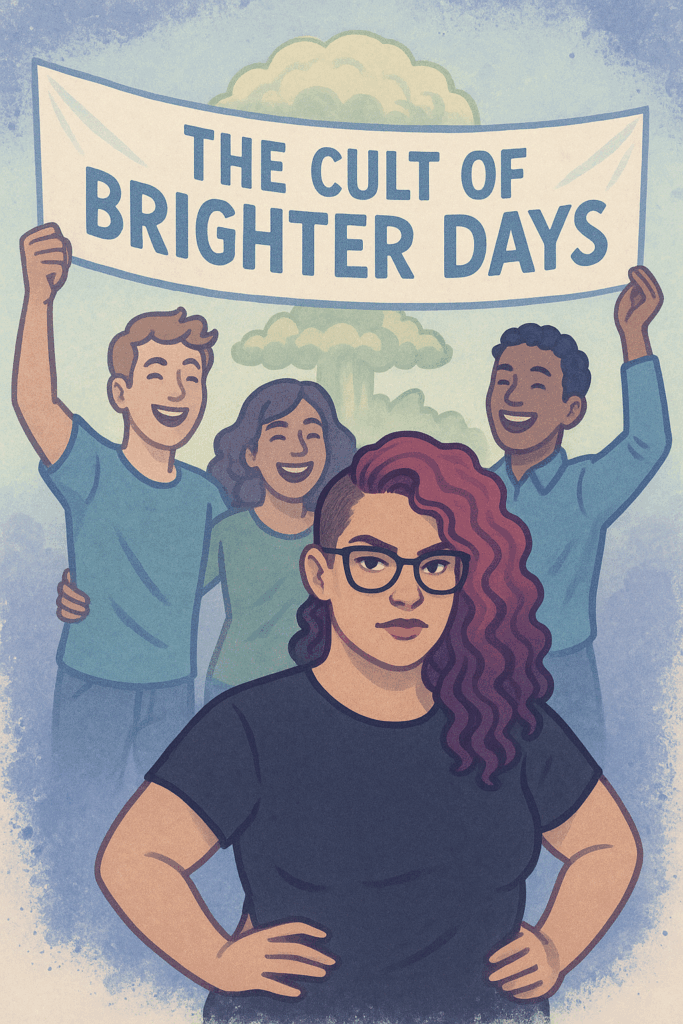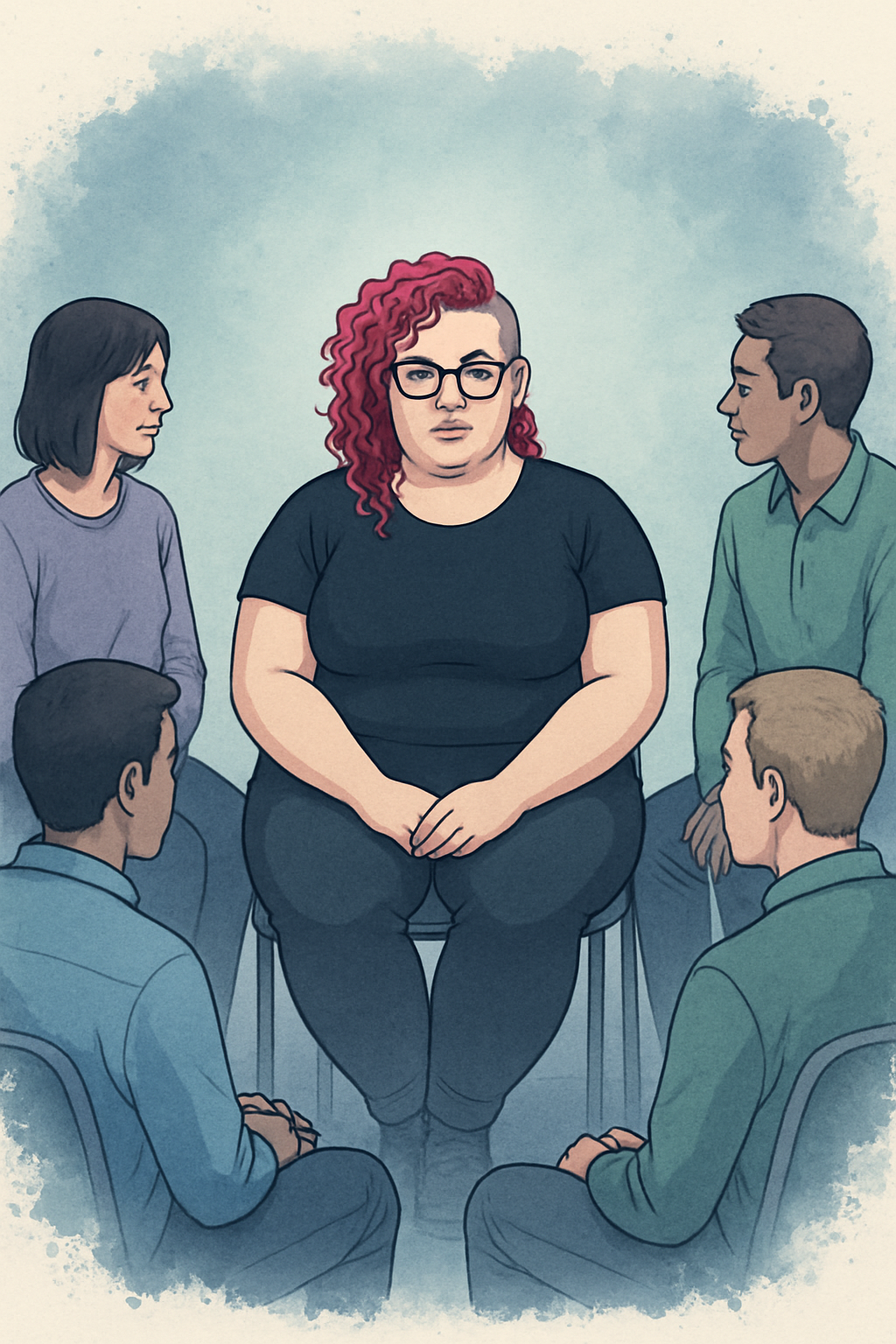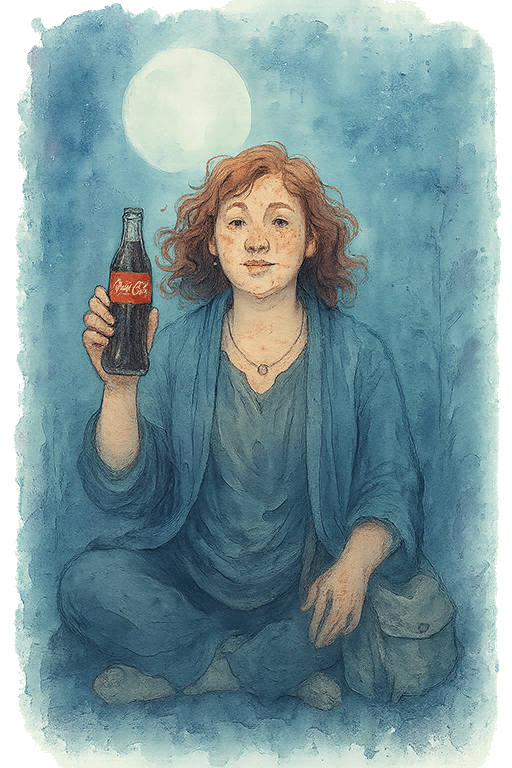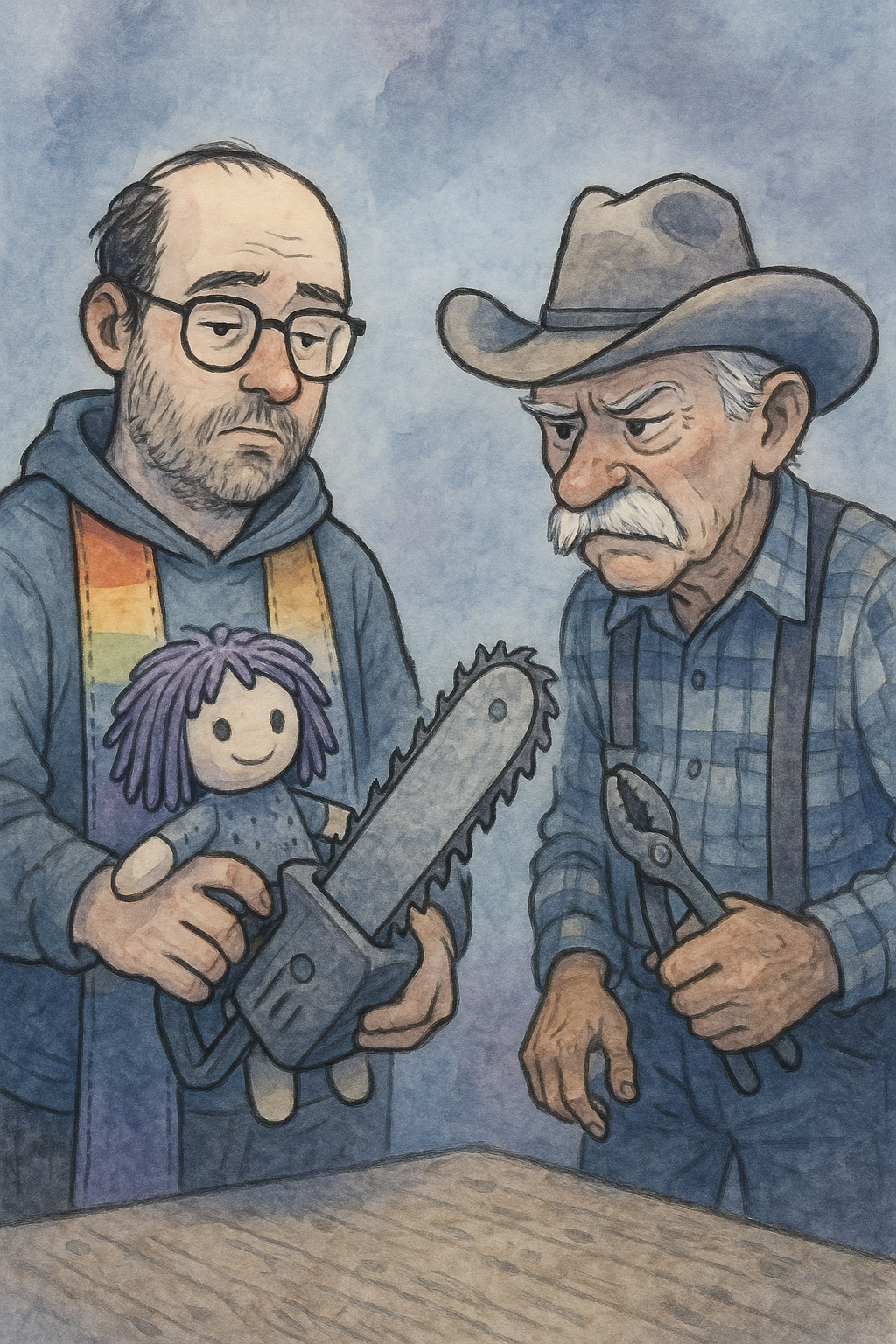Once upon a cubicle, we all agreed to a little lie.
We called it “professionalism.”
But it was really:
Pretend to be okay, or we’ll find someone who can.
That glossy mask—the poised tone, the neutral affect, the “I’m fine, thanks”—was never proof of competence.
It was just what you had to wear to survive the boardroom without bleeding.
And for a while, it worked.
The system smiled back.
You got to keep your job.
But you also lost pieces of yourself—one swallowed feeling at a time.
Because professionalism, as we inherited it, was never about showing up.
It was about shutting down.
Then the world broke.
The mask cracked right down the middle like a clearance-sale foundation layer on a too-hot day.
It cracked when “background noise” became your kid sobbing behind you on Zoom.
When your out-of-office reply said “family emergency” and meant “I can’t stop crying and I don’t know why.”
It cracked when the workday continued like a freight train over a funeral, and your boss asked if you got that Q3 deck in.
(What deck, Karen? The house is on fire.)
It cracked because pretending to be okay in a world actively not-okay isn’t resilience.
It’s a slow death by suppression.
And The Cult of Brighter Days says:
Good. Let it crack. Smash that mask like a ceremonial office printer on Rage Day.
Let the mask die.
Let it slide off in meetings.
Let it disintegrate mid-email.
Let your “per my last email” finally mean “I’m holding it together with caffeine and vibes.”
Because if the choice is between being real or being digestible—
Choose indigestion.
Make their fake smile twitch.
Make the room recalibrate.
Force the illusion to blink.
So what comes after the mask?
• Emails with blood in them.
“Sorry I missed the deadline. I’m navigating grief, and time got weird. I’ll try again tomorrow.”
(That’s not weakness. That’s data. That’s trust.)
It’s also an invitation. An opening for someone else to say,
“Thank you for sharing. I’m carrying some invisible weight too.”
• Meetings where people cry—and no one offers a tissue like it’s holy water.
Nobody panics. Nobody says, “Maybe mute yourself.”
We just let it happen.
Because being overwhelmed by reality is a sane response to 2025, and the strongest thing you can do some days is show your face leaking.
• Leaders who say, “I don’t know.”
And don’t follow it with “but I’ll circle back with synergy.”
Just I don’t know. Like a human. Who exists in time.
Who makes decisions not from a mountaintop of detachment but from the messy, mortal trench with the rest of us.
• Systems that admit they’re built out of people, not productivity metrics.
People with meat bodies and weird brains.
People who need naps.
People who sometimes ghost Slack because their frontal lobe locked the door.
And here’s the real revolution:
When you take off the mask—when you risk showing the raw, red, real version of you—you’re not just liberating yourself.
You’re giving everyone else permission to do the same.
Empathy is contagious.
It rewires the air.
That one moment of honesty becomes a rupture in the system—a glitch in the corporate Matrix where the machine briefly sees your soul and has to reckon with it.
And if we stack up enough of those moments?
We build a new culture.
One where asking for help isn’t career suicide.
Where vulnerability isn’t performative—it’s collaborative.
Because empathy isn’t just a vibe.
It’s infrastructure.
It’s what allows humans to co-regulate, co-survive, and occasionally co-thrive—even when the Wi-Fi is down and capitalism is screaming.
So yes. Let the mask shatter.
Let your inbox catch some feelings.
Let your meetings grow awkward and beautiful.
And let others see you—not your curated hologram.
Because when you stop pretending to be unbothered, you remind someone else that they’re not broken for being overwhelmed.
That’s not weakness.
That’s leadership.
And that—that cracked, messy, radically honest humanity—is how we begin to build something better.
Not just a workplace.
A culture worth waking up for.





